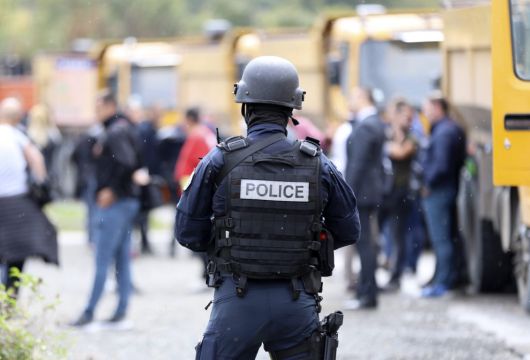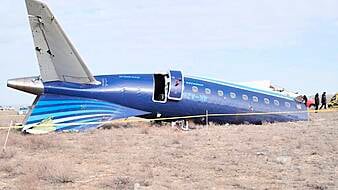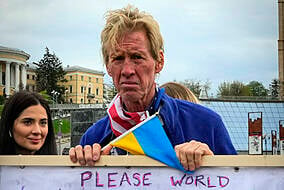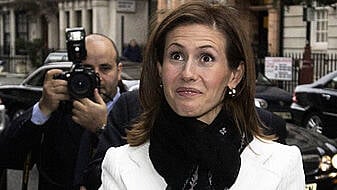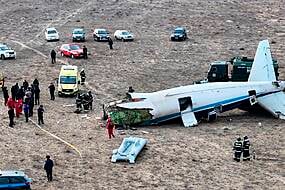The Kosovo-Serbia border remained blocked by ethnic Kosovo Serbs protesting about a move by Kosovo authorities to start removing Serbian licence plates from cars entering the country.
Trucks have blocked the road to the Jarinje and Brnjak border crossing where small groups of Serbs spent the night in tents.
Tensions soared when Kosovo special police with armoured vehicles were sent to the border to impose a rule on temporarily replacing Serb licence plates from cars while they drive in Kosovo.
Kosovo authorities said a 2016 deal reached in European Union-mediated talks had expired and only proper Kosovo symbols are now valid.

Serbian police have for years been taking off registration plates from Kosovo-registered cars entering Serbia.
Hundreds of Kosovo Serbs drove to the border in their cars and trucks, blocking roads leading to the crossing points. Kosovo police fired tear gas at the protesters, but they continued to remain there and keep the road blocked.
Serbia doesn’t recognise its former province of Kosovo as a separate state and considers the mutual border only as an “administrative” and temporary boundary.
Thousands of people were killed and more than 1 million were left homeless after a 1998-1999 bloody crackdown by Serbian troops against Kosovo Albanian separatists.
The war ended only after NATO intervened. Kosovo then declared independence in 2008. It has been recognised by the US and other Western nations, but not by Serbia and its allies Russia and China.
Thousands of NATO-led peacekeepers are still deployed in Kosovo, trying to stave off lingering ethnic tensions between majority Kosovo Albanians and Kosovo Serbs.
Serbia’s populist president, Aleksandar Vucic, called the move by Kosovo police “a brutal attack” and appealed for NATO troops to protect Serbs.
Kosovo Prime Minister Albin Kurti said that as long as Serbia changes the licence plates of Kosovo cars when entering there, the same would be applied to Serb cars entering Kosovo.
